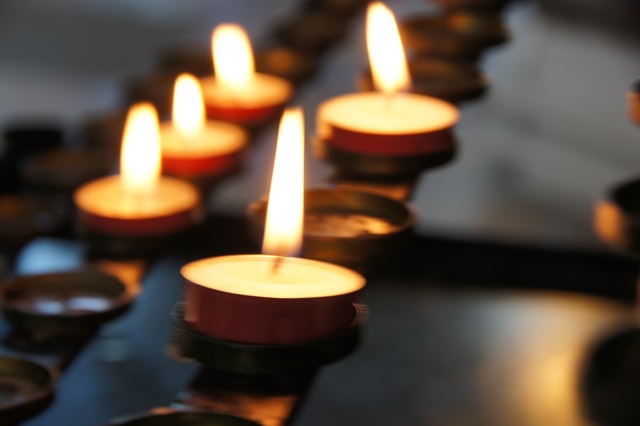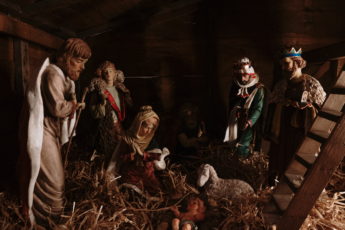
Trouble is coming your way, you Abrahamic, steel-fisted, future-looking pillars, you. I know because the Good Book says so.
In the world, you’ll have trouble.
King of the universe (John 16:33)
Here’s another quote from the Book of Books:
Man is born to trouble as sure as sparks fly upward.
eliphaz (job 5:7)
One of the many kinds of promised troubles you’ll endure will be car trouble. That’s coming. Get over it. Know where the nearest NAPA Auto Parts store is, join their points club or whatever they have, and just know that you’re going to have to deal with it.
But auto trouble isn’t (primarily) what this article is about. It’s about people dying. That is also coming your way, by the boatload… and it’ll be even worse than car trouble. I love you enough to tell you the truth, which is one of the reasons you tune in.
We have much to say about what to do before a parent dies, and even have a guide for working through a deceased loved one’s financial and practical concerns (hit us up to get one). But today, as a companion to this podcast episode, I want to talk through how to grieve a death with your community.
Now, American culture is pretty much moot on the subject of how to grieve (we generally just write medication prescriptions for issues of the soul). We are far better at subjects like “how to minimize wrinkles” and “how to delay payments on a great new Ford F150 until next year”. Because of that yawning silence on the subject, let’s take a lesson from a culture that’s older, more resilient, and built on deeper Biblical roots…

Sitting Shiva
“Sitting Shiva” is a Jewish practice that can last anywhere from a few hours to the traditional 7 days (“shiva” means seven, see Gen 50:10).
“Sitting Shiva” is a time of communal grieving and healing in which friends are simply WITH each other. Typically the home of the deceased (or a principle mourner) is HQ for sitting shiva, but the family that lives there should not be considered “hosts”. Instead, that house is a place where they (and others) are cared for and grieved with.
A “Shiva house” looks unusual: mirrors are covered; hair (including whiskers) is unkempt and not “done up”, and everyone wears plain, muted clothing (these all signify that mourners are not engaged in selfish concerns or vanity during this time, see 2 Samuel 14:2); no screens are on, nor is there music, games, or anything that would be considered joyous; mourners sit low (often on the floor), and a candle is often lit.
“Making a shiva call” is when another mourner drops by (there is no invitation needed) to the house of the mourners. A mourner making a shiva call is entering into the ongoing grief. Nobody will be greeted at the unlocked door, nor are greetings expected when someone new enters the room. The visitor simply gets low (often without shoes, signifying humility) and joins the mourners. (If a visitor is bringing food, which is common, it’s simply dropped off in the kitchen or dining room, with heating instructions attached and, if necessary, a name so that the dish can be returned.)
How to Sit Shiva
When observing a shiva, the activities are specific and narrow. There is a constant green light for:
- Sharing good memories of the deceased. Visitors often bring photographs of the deceased and may share the anecdote surrounding them.
- Praying, specifically around the subject of mourning, grief, death, and interceding for friends and family left behind. (For observant Jews, daily prayers, which are usually done at the local synagogue, can be done in a shiva home.)
- Reading from the Scriptures. Passages about death, God’s judgement after death, and God’s promises are all appropriate, as are passages about heaven and redemption. Consider sitting shiva a time of open study for the community regarding death and the afterlife. We should know more of God’s heart around such matters after having participated.
- Sitting in silence. Let the family (or those closest to the decesased) lead the way here. If they want to sit for hours in silence, let it be so. Presence and community is the aim, not content.
*There is NOT a green light for casual, lighthearted talk. IF the mourners/hosts turn the conversation to something more upbeat, those in attendance may join in. Otherwise, the content remains: memories, prayers, scriptures, silence. It doesn’t have to be a somber time… but usually is.
ENDING A SHIVA is traditionally done before lunch, but the host home can change that. There should be blessings read, such as Isaiah 60:20, “No more will your sun set, nor your moon be darkened, for God will be an eternal light for you, and your days of mourning shall end.” The formal end of shiva comes when mourners (whoever happens to be there) take a walk around the block together, symbolizing their return to society.

Some Personal Notes on the Above
- Sitting shiva gets old. If you’ve ever fasted, you know the feeling that happens around 2pm: “Yeah I think I’ve pretty much got it: you stay hungry for a while and show God how much you really really love Him. OK so I really really love God… now where did I hide the Pringles?” …it’s like that. You kind of go “ok I felt sad, we all felt sad, and we’ve read a few verses about death. …I think I’m good.” But sitting shiva IS like a fast: it’s a time you’ve set aside to be TRAINED by the LORD (at least that’s how I think of it) to know HIS heart regarding death and the life that’s after life. And it really IS good to contemplate… and again, we live in a time and culture that does NOT encourage that kind of contemplation AT ALL. So if you set aside time to do this… DO IT.
- Your friends will thank you. Did I mention that our culture doesn’t allow for grieving, nor give any advice on how to do it? Your friends feel that same ugly need to grieve, and they really want to do it in community. They WANT to get together and talk about the ache of wishing they could talk to their old friend (or mom, or mentor, or whomever), but where could they possibly do that and not be the Major Downer? I know! YOUR SHIVA GATHERING! Ever heard the saying “people don’t care how much you know until they know how much you care?” Well, if you have any aspirations of being an elder-type leader, here’s a slam dunk of a way to lead your community in godly emoting, care for folks’ emotional and mental health (BTW avoiding grief plays havoc on humans), and build a community of godly love and mutual support.
- Remembering is important. Even in the Christian community, our tendency is to flit from one subject to another, one book to the next, one Big Church-wide Challenge to the next… even our regular Sunday meetings are roulette wheels of head-spinning topics (I cannot imagine being a church preacher and having to generate a new talk every week on every subject under the sun, expecting people to more or less track with you no matter the topic). The point is: we don’t stay on a subject for very long at all. (A dear Jewish friend of mine, Bob, once told me that he’d been meditating on Luke chapter one FOR THE LAST YEAR and my head nearly popped off my neck and rolled around the floor like a Weeble out of sheer amazement. WE DON’T DO THAT, BOB.) Taking the time to ask, “What lessons did God teach us through our dearly departed friend?” is a really godly thing to do. “I could see the LORD in Betty’s life by her faithfulness. Here’s a passage about faithfulness that sounds just like her…” “Michael taught me what being a teacher really is. He always referred to Ephesians 4; let’s read it now…” That kind of remembering, which God commands, is almost completely absent from American life, and a little more of it could go a long way.
Well that’s how we’ve been doing things for a few years, anyway. If you have a better method, DO TELL. But for me, I’ll be following the Jewish pattern of grieving; I figure a few thousand years of tinkering has probably produced something worth noting.
So… if you try sitting shiva (or are even in a season when you’re considering it), I want to say “may the Father of compassion and the God of all comfort, comfort [you] in all [y]our troubles, so that [you] can comfort those in any trouble with the comfort [you yourself] receive from God.” 2 Corinthians 1:3. Bless you as you consider these things.

As an additional gift! because you acted quickly! I’m just GIVING AWAY this list of passages that make for good shiva fodder. I keep these in a file on my computer, and you might do the same. Because… you know… as I said… you’re going to need them…
Passages About Death!
Gen 23:2 Sara mourns for Abraham
“Days” of mourning, Esau (Genesis 27:41) and Moses (Deuteronomy 34:8)
Fasting re: Saul and Jonathan (2 Samuel 1:12); for the king’s decree commanding Jews to be killed, (Esther 4:3)
Tearing clothes and putting on sackcloth (a rough, black cloth) for Avner (2 Samuel 3:31)
2 Kings 4:32-37; cf Luke 7:11-17
John 11:1-45
1 Cor 15:19-26, 51-55
1 Thes 4:13-18
Rev 21:4
Psalm 9
Psalm 48
Psalm 68
Psalm 73 (comparing death of the wicked and righteous)
Psalm 116






